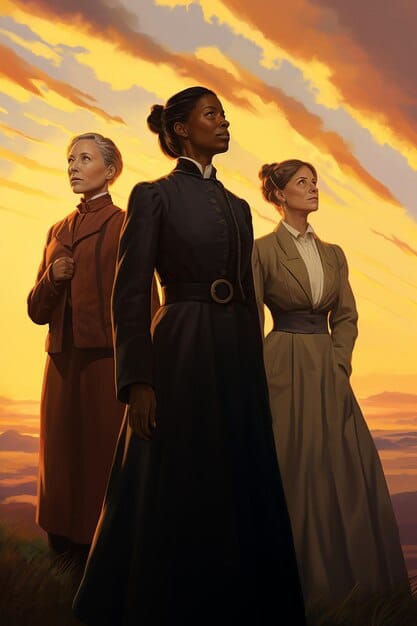Reclaiming Wanda (1970): A Landmark in Forgotten Feminist Films

Forgotten Feminist Films: Reclaiming ‘Wanda’ (1970) as a Landmark of Independent Cinema highlights Barbara Loden’s raw and unflinching portrayal of a woman adrift, cementing its place as a pivotal work in feminist cinema history.
In the vast landscape of cinema, certain films fade from the spotlight, only to be rediscovered and celebrated for their groundbreaking contributions. Today, we shine a light on Forgotten Feminist Films: Reclaiming ‘Wanda’ (1970) as a Landmark of Independent Cinema, a poignant and often overlooked masterpiece directed by and starring Barbara Loden.
Unveiling ‘Wanda’ (1970): A Lost Gem
Barbara Loden’s ‘Wanda’ (1970) is more than just a film; it’s a raw, unflinching look at a woman’s struggle for identity and agency in a patriarchal society. Often relegated to the fringes of cinematic history, ‘Wanda’ deserves a central place in discussions about independent and feminist filmmaking.
The film’s stark realism and Loden’s unvarnished portrayal of Wanda Goronski offer a stark contrast to the idealized female characters prevalent in mainstream cinema of the time. It’s a film that challenges viewers to confront uncomfortable truths about female disempowerment and the complexities of human relationships. Forgotten Feminist Films: Reclaiming ‘Wanda’ (1970) as a Landmark of Independent Cinema involves understanding the societal context in which it was created and initially received.
The Story of Wanda Goronski
Wanda’s story begins with her passively relinquishing custody of her children and drifting aimlessly through life. She becomes entangled with a petty criminal, Mr. Dennis, and their relationship, marked by manipulation and dependence, exposes the vulnerabilities of a woman without resources or social support.
Loden’s direction avoids sensationalism, instead focusing on the mundane realities of Wanda’s existence. The film’s power lies in its quiet observation and its refusal to offer easy answers. Forgotten Feminist Films: Reclaiming ‘Wanda’ (1970) as a Landmark of Independent Cinema highlights that the power comes from the film’s brutal honesty.
- Wanda’s passivity is not presented as a character flaw but as a consequence of her circumstances.
- The film challenges the notion of female self-sufficiency in a world that offers limited opportunities for women.
- The relationship between Wanda and Mr. Dennis is a microcosm of power dynamics in society.

In conclusion, ‘Wanda’ is a powerful and complex film that defies easy categorization. Its exploration of female identity, its unflinching realism, and its challenging themes make it a crucial work in the history of independent and feminist cinema. Forgotten Feminist Films: Reclaiming ‘Wanda’ (1970) as a Landmark of Independent Cinema is essential for understanding its enduring relevance.
Barbara Loden: The Multifaceted Creator
Barbara Loden wasn’t just an actress; she was a writer, director, and visionary. Her work defied the conventional narratives of Hollywood, giving voice to marginalized characters and exploring complex themes with unflinching honesty.
Loden’s journey as a filmmaker was marked by both triumph and struggle. Despite the critical acclaim ‘Wanda’ received, she faced challenges in securing funding and distribution for her subsequent projects. Forgotten Feminist Films: Reclaiming ‘Wanda’ (1970) as a Landmark of Independent Cinema reminds us how difficult it was for women filmmakers getting recognition at the time.
Her unique perspective and commitment to authenticity set her apart from her contemporaries. Her influence can be seen in the work of contemporary filmmakers who also prioritize female-driven narratives and unconventional storytelling.
- Loden’s background as an actress informed her approach to directing, allowing her to elicit nuanced performances from her cast.
- Her independent spirit and willingness to challenge conventions paved the way for future generations of female filmmakers.
- Loden’s legacy extends beyond her filmography, inspiring artists to embrace authenticity and explore uncomfortable truths.
Ultimately, Barbara Loden was an artist who defied expectations and challenged the status quo. Her contributions to cinema deserve to be recognized and celebrated. ‘Wanda’ remains a testament to her talent and vision. Forgotten Feminist Films: Reclaiming ‘Wanda’ (1970) as a Landmark of Independent Cinema also means honoring her artistic vision.
‘Wanda’ and the Feminist Movement
‘Wanda’ emerged during a pivotal moment in the feminist movement, a time when women were demanding greater autonomy and challenging traditional gender roles. While not explicitly a “feminist film” in the conventional sense, ‘Wanda’ resonates with the movement’s core concerns.
The film’s portrayal of a woman struggling to find her place in a patriarchal society reflects the challenges faced by many women during this era. Wanda’s lack of agency and her dependence on men are not romanticized but presented as a harsh reality. Forgotten Feminist Films: Reclaiming ‘Wanda’ (1970) as a Landmark of Independent Cinema showcases a woman’s struggle for identity.
It offers a nuanced perspective on female disempowerment, avoiding simplistic narratives of victimhood or triumph. Wanda is not a heroine, but a complex and flawed character whose struggles are deeply human.
Consider these points in relation to feminism and the film:
- The film’s exploration of female identity resonates with feminist critiques of patriarchal structures.
- Wanda’s passivity can be interpreted as a form of resistance against societal expectations.
- The film challenges the notion of female self-sufficiency in a world that offers limited opportunities for women.
In conclusion, ‘Wanda’ is a film that speaks to the complexities of the feminist movement. Its nuanced portrayal of female disempowerment and its exploration of identity make it a valuable contribution to the discourse on gender and power. Forgotten Feminist Films: Reclaiming ‘Wanda’ (1970) as a Landmark of Independent Cinema is vital for feminist film studies.
The Independent Spirit of ‘Wanda’
‘Wanda’ is a quintessential example of independent filmmaking, made outside the Hollywood studio system and driven by the personal vision of its creator. Barbara Loden’s commitment to authenticity and her willingness to challenge conventions set ‘Wanda’ apart from mainstream cinema.
The film’s low budget and its use of non-professional actors contribute to its raw and realistic aesthetic. Loden’s hands-on approach to every aspect of production allowed her to maintain complete creative control. Forgotten Feminist Films: Reclaiming ‘Wanda’ (1970) as a Landmark of Independent Cinema highlights the true meaning of independent filmmaking.
The impact of ‘Wanda’ on independent cinema cannot be overstated. The film’s success paved the way for future generations of filmmakers to break free from the constraints of the studio system and pursue their own artistic visions.
Key Aspects of ‘Wanda’s’ Independent Production
Exploring the themes can give a better picture of its impact.
- The film’s low budget forced Loden to be resourceful and innovative in her approach to filmmaking.
- Her use of non-professional actors added to the film’s sense of realism and authenticity.
In essence, ‘Wanda’ embodies the spirit of independent cinema: a commitment to artistic vision, a willingness to challenge conventions, and a determination to tell stories that might otherwise go unheard. Forgotten Feminist Films: Reclaiming ‘Wanda’ (1970) as a Landmark of Independent Cinema will always represent independent filmmaking at its finest.
Rediscovering ‘Wanda’: Challenges and Triumphs
Despite its critical acclaim, ‘Wanda’ has remained largely outside the mainstream cinematic canon. Its rediscovery in recent years is a testament to its enduring power and its relevance to contemporary audiences.
One of the challenges in reclaiming ‘Wanda’ is its lack of accessibility. For years, the film was difficult to find, with limited screenings and distribution options. As audiences and critics rediscover the film, its impact continues to grow.

The film’s rediscovery is a triumph for independent cinema and for female filmmakers who have long been marginalized in the industry. ‘Wanda’ serves as a reminder of the importance of preserving and celebrating diverse voices in cinema. Forgotten Feminist Films: Reclaiming ‘Wanda’ (1970) as a Landmark of Independent Cinema continues to inspire viewers and filmmakers alike.
Here are some points to consider:
- The film’s rediscovery highlights the importance of film preservation and restoration.
- Its increasing recognition is a testament to the power of word-of-mouth and online communities in promoting independent cinema.
- ‘Wanda’ serves as an inspiration to contemporary filmmakers who are challenging conventional narratives and giving voice to marginalized characters.
In conclusion, the rediscovery of ‘Wanda’ is a story of triumph over obscurity. It is a testament to the film’s enduring power and its relevance to contemporary audiences. The fact that Forgotten Feminist Films: Reclaiming ‘Wanda’ (1970) as a Landmark of Independent Cinema gets more attention now is a positive development.
The Enduring Legacy of ‘Wanda’
The legacy of ‘Wanda’ extends far beyond its initial release. The film has influenced generations of filmmakers, inspired countless viewers, and contributed to the ongoing conversation about gender, identity, and power.
Barbara Loden’s singular vision and her commitment to authenticity have cemented ‘Wanda’s place in cinematic history. As more and more people discover the film, its impact continues to grow. ‘Wanda’s legacy is one of artistic integrity, social commentary, and female empowerment. Forgotten Feminist Films: Reclaiming ‘Wanda’ (1970) as a Landmark of Independent Cinema ensures a lasting impact.
It continues to resonate with audiences who are drawn to its raw honesty and its uncompromising portrayal of a woman on the margins of society.
| Key Point | Brief Description |
|---|---|
| 🎬 Loden’s Vision | Loden created a raw, unflinching portrayal of female struggle. |
| ♀️ Feminist Themes | Explores female disempowerment and challenges gender roles. |
| 🎥 Independent Film | Made outside Hollywood, driven by personal artistic vision. |
| 🌟 Rediscovery | Gaining recognition for its impact on cinema. |
Frequently Asked Questions
‘Wanda’ offers a realistic portrayal of a woman’s struggle in a patriarchal society, diverging from idealized female characters and offering a powerful critique of gender roles.
Barbara Loden was the director, writer, and lead actress of ‘Wanda’. Her multifaceted role gave her complete creative control, resulting in a deeply personal and authentic film.
‘Wanda’ exemplifies the independent film spirit through its low budget, non-professional actors, and Loden’s commitment to her artistic vision outside of the Hollywood system.
Accessibility has been a major challenge, with the film being difficult to find for many years. However, increased recognition and distribution are helping to address this issue.
The film’s themes of female disempowerment, identity, and the struggle for agency continue to resonate, making it a relevant and thought-provoking piece of cinema for modern viewers.
Conclusion
‘Wanda’ remains a testament to the power of independent filmmaking and the importance of giving voice to marginalized perspectives. Forgotten Feminist Films: Reclaiming ‘Wanda’ (1970) as a Landmark of Independent Cinema solidifies its place as a cornerstone of feminist cinema and a powerful work of art.
Its enduring legacy serves as an inspiration to filmmakers and viewers alike, reminding us of the transformative potential of cinema. ‘Wanda’ can spark important conversations about gender, power, and the human condition.





